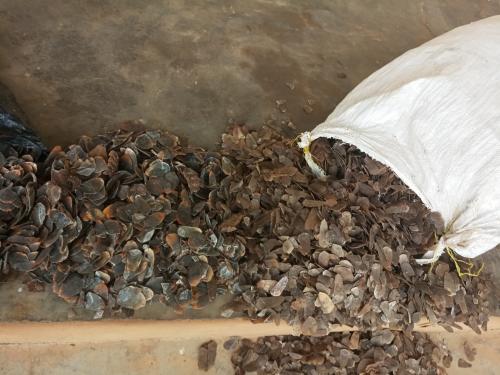A trafficker arrested with 23kg of pangolin scles

An alleged wildlife trafficker has been arrested in Ebolowa in the South Region for trafficking in pangolin scales. He was arrested during an operation carried out by wildlife officials of the Mvila Divisional Delegation of Forestry and Wildlife in collaboration with the police. The operation was carried out with the technical assistance of LAGA, a non-governmental organization specialized in wildlife law enforcement.
The man was caught with 23kg of pangolin scales in his attempt to carry out an illegal transaction to sell the scales. According to a source close to the case that requested for anonymity, the trafficker travelled from Aloum II to Ebolowa at night with the scales concealed in a bag. He used the cover of the night to move the pangolin scales because he knew the activity was illegal, the same source declared. Further investigations show that the suspected trafficker belongs to a local network of pangolin scales traffickers. They collect pangolin scales from many villages particularly from Asouck, Adjap and Mefo, stock them and later sell.
Pangolin is the most trafficked mammal in the world. Of the eight pangolin species that exist, the country is host to three, the black-bellied, the white- bellied and the giant pangolins which are all in the list of totally protected species. Scales from two species of pangolin (the black-bellied and white-bellied) were found in the seizure. The white-bellied species of pangolin is most poached and traded.
According to a study published this May in Molecular Biology Reports, the Douala network market is fed from differentiated source populations of white-bellied pangolins. Wildlife trafficking and the trade in pangolins in particular is on the rise despite the global health situation facing Covid-19 believed to have zoonotic origins. Writing for The New Yorker, David Quammen an American science and nature writer says that the elusive animals' possible involvement in the origins of COVID 19 gives it a weird contradiction, not only threatened but perhaps also dangerous.
Pangolins are highly threatened with extinction and the trade in pangolin products remains strictly illegal. According to the wildlife law that governs the sector, anyone found in possession of parts of a totally protected species is liable to a prison term of 1 to 3 years and or a fine of 3 to 10 million CFA F.
